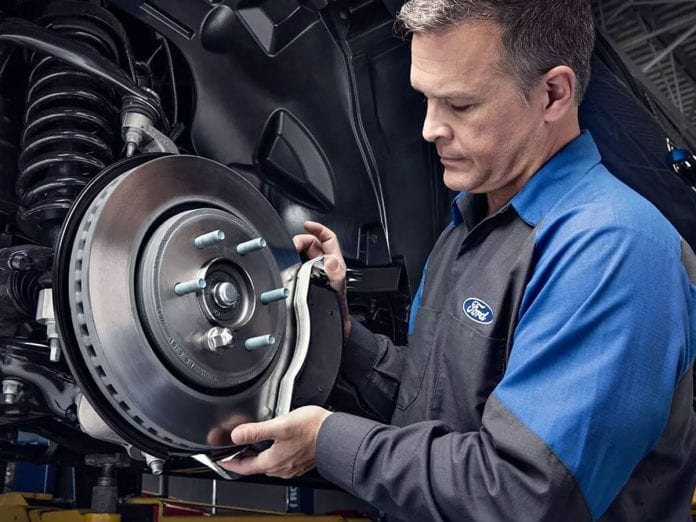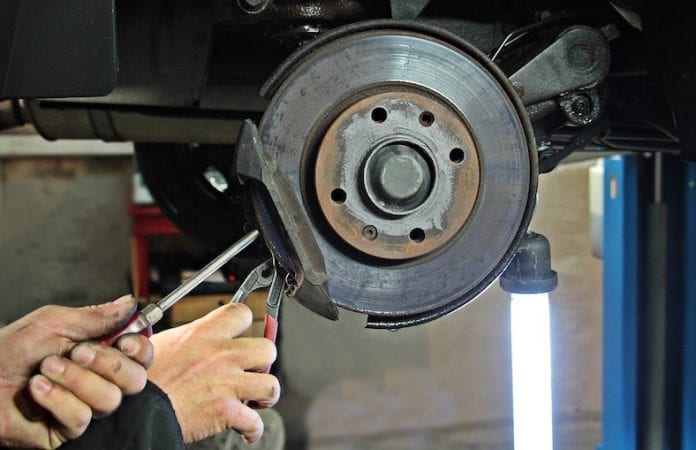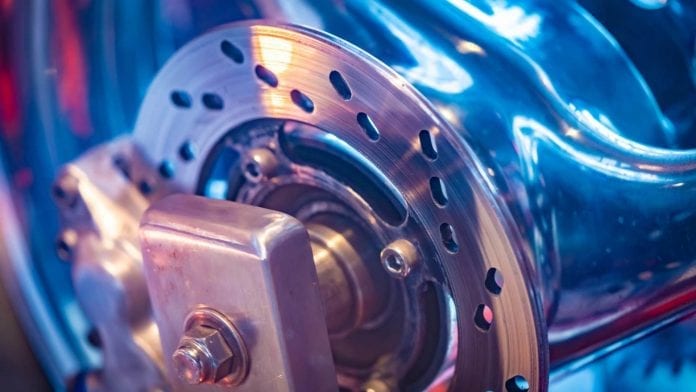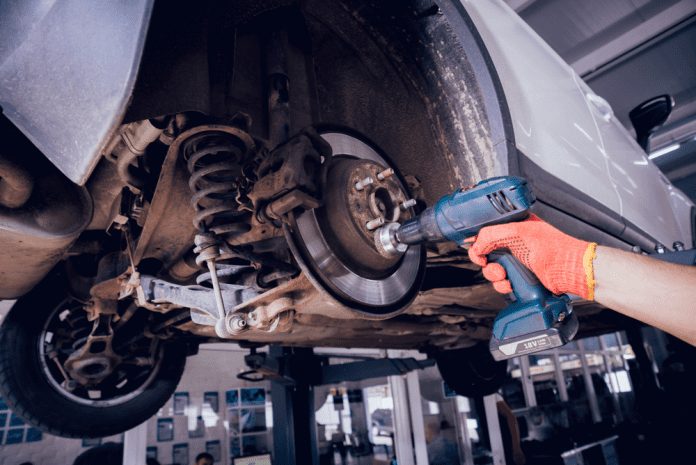If there is one part of your car that should always be in top working condition, it’s the brakes, no matter how handy you are with a wrench. Worn-out brakes can mean the difference between a near miss and a bad fender-bender, or even worse.
So, for the sake of safety, pay attention to these 8 signs that say your car needs professional service brakes.

1. High-pitched screeching
If when you apply your brakes, you hear a high-pitched screeching noise, don’t worry, it doesn’t mean they will give out any minute. However, it does mean that one or more of your brakes could be on its last leg, and you should plan on a replacement as soon as possible.
The screech comes from a small piece of metal built into your brake pads which is meant to let you know when the pads are getting low and need to be replaced soon. So just call a mechanic if you hear your brakes calling.
2. Heavy grinding sounds
You’ll typically get a screeching reminder when your brake pads are getting low. If, however, somehow you missed that, you’ll soon be greeted with an even worse sound: heavy metal grinding or groaning. This sound means that the pads have completely worn down.
Replacement is probably out of the question at this late stage. This particular sound is caused by the friction between the metal plate and the rotor rubbing against each other. This can either scratch the rotors or even melt the metal together in a short time and cause your brakes to stick, meaning that you may be faced with the likelihood of replacing more than just your brake pads.
This is a safety hazard that needs to be addressed ASAP locally by trusted professionals like NOLA Automotive Repairs.
3. Vibration of the brake pedals

Does your brake pedal shake violently every time you step on it? Your brake pads could be the cause of this problem. Typically, the brake pads are held together with some sort of adhesive. This adhesive gets hot as each pad is worn down and then it gets all over the rotor.
Under normal conditions, it will form a sort of covering which is evenly distributed over the surface of the disk. But if one of the pads gets overheated, the adhesive may not be uniformly distributed, causing your brake pedals to vibrate.
4. Extremely sensitive brakes
If your brakes jerk your car at the smallest touch, this could mean either you need a brake fluid change or that your rotors have unevenly worn down. It’s a sign that you need to get to a mechanic, right away.
5. Extremely insensitive brakes
On the other hand, if you have to press your brake pedal almost completely to the floor to get your brakes to function, that’s a problem as well. It could be you’re low on brake fluid, the brake fluid has air, or your brake pads are too thin.
It might also be a symptom of a problem with the hydraulic system in your car. Whatever it is will be diagnosed appropriately by a mechanic.
6. Driveway puddle
If your brake system leaks fluid, the easiest way to tell is to check under your car. If after the car has not been driven for a while you find a small puddle of liquid and it looks similar to fresh motor oil but not as slippery, it’s probably brake fluid.
In such a situation, driving your car could be a risky endeavour as your brake fluids can leaks out completely so that your brakes cannot engage on the road, leading to a crash. Even if you are not certain if the puddle of oil beneath your car is your brake fluid, it is still a good idea to consult a professional as that could be a sign of another serious fault with your car fluid system.
7. Pulling to one side
When it sounds like an unseen force, when braking, forces the vehicle to one side, there is a fair risk that the brake linings are stretched unevenly and need to be adjusted.
This may also be an indication that the brake fluid contains some form of foreign substance, which means you’ll need to have the fluid removed and repaired.
8. Doing a physical inspection
One more way to decide whether it’s time to replace your brake pads is to actually look at them. You should be able to locate the brake pad on the tire rotor by looking between the spokes on your wheels. If it looks less than 1⁄4 inch thick, it’s probably an indication they need to be removed and replaced.

One way to extend brake life is to switch the tires about at least once in a year. This will prevent sections of your tire from getting worn down. Also, taking the appropriate steps to ensure that your brake pads are still working effectively and that they are changed regularly will help you avoid more harm to the brake.
Finally
There is a sensor on the bake pad in some car models which will activate when the brake pads are worn down. When your brake light comes on by itself, you need to get a technician to look at your brake pads and make a decision about how quickly they can be replaced.
Of course, an illuminated dashboard brake light could also be caused by a faulty speed sensor, the nifty device inside the wheel of modern cars that monitors the operation of the tires. But regardless, it is always best to consult a professional whenever an unexpected signal light comes up on your dashboard.
If you’ve seen, heard or felt any of the above signs, it means you need professional attention on your brakes. Don’t wait for it to escalate into a major mechanical fault before seeking help as even minor problems such as worn brake pads can become very costly if ignored. And a properly functioning brake system is, of course, important for your safety.









